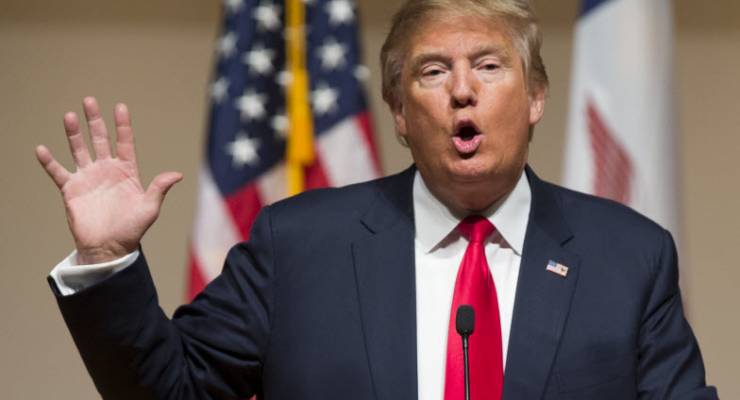
The Trump cheer squad in Australia has gone very quiet … that’s a phrase I’ll be setting up a shortcut for. A few weeks ago, the Republicans were hammered in a special House election in Pennsylvania’s 18th, a district Trump won by 20 points. Now the Congressional Budget Office has announced that the US budget deficit will hit one trillion dollars annually before the end of Trump’s term. No huge disaster per se, but it is terrible PR for a party that ran on notions of US economic collapse from public debt.
Trump’s second challenge is in foreign affairs. The chemical attack on Douma in Syria has come with a strong whiff of Groundhog Day — along with the gas. The attack is atrocious, but so too are conventional attacks. Focusing on gas attacks is an excuse to flash US power. With Dubya-era hawk John Bolton returned as national security adviser, the last vestiges of non-intervention and isolationism have left the building.
Yet the attack has simply revealed, once again, the limits of that power — and the inability of any president, least of all Trump, to do much about it. President Barack Obama famously suffered a blow to his image when he announced that use of chemical weapons by Assad would constitute a “red line” — and did nothing when the line was crossed with the attack on rebel-held parts of Damascus in August 2013.
But this was both part of, and greater impetus for, Obama’s rethinking of US foreign policy initiatives — that, with the rise of China, the increasing flow of North American oil, and the decreasing dependency on it in future decades, the US could pivot away from the “Middle East” (actually central-west Eurasia), and towards east Asia and China.
Trump ruled off on that approach with the missile strike on Assad-controlled Shayrat in April 2017. That was the old-skool firepower that quite a large number of the US populace like, secretly or otherwise, and its publicity intent was clear. America is back, baby. Except, of course, it wasn’t and isn’t.
What can the US possibly do? Another standard big mass missile strike will attract memories of the previous one. Missile strikes, bombing runs on the government quarter of Damascus, with civilian deaths, Russian deaths, Western deaths? On-the-ground operations?
The paradox of American power becomes visible: anything that has the appearance of real power, actually lessens the actuality of it. US power in a multi-polar world is a called bluff. What if they were to go real big? They’ve used the MOAB conventional bomb before, as yet another display of powerless power. The right-wing squawkbox is full of fantasy suggestions for escalation, such as “taking out the Syrian air force now!”.
In theory, the next stage would be the use of a tactical nuclear weapon: the small, boutique bunker-busters developed in the 1990s. The world’s horror and abhorrence, the contradiction of replying to a WMD attack with a WMD — in effect re-affirming US unilateral power — all that would play to the right, to the base, to large sections of the American public. It would bring some countries to heel — and unite large sections of the world ever more tightly against the US. That would not necessarily be unwanted by a Bolton-driven White House, as it would dispel the last vestiges of public multi-lateralism inherited from the Obama era.
Hopefully, the US will not be tempted that far (though of course, tactical nuclear weapons will eventually be used in the decades to come; that is a virtual certainty). But whatever it does will leave it less powerful than before.
But still the question remains. What happens after? There is nothing short of full invasion that would “settle” the Syrian matter, and that is out of the question. Anything less leaves the US both looking and actually being weaker than before. The only action which preserves both the mystique and actuality of US power – as Obama well understood — is to do nothing at all. Doing nothing plays to Trump’s strengths. If only he were the one in charge …








Crikey is committed to hosting lively discussions. Help us keep the conversation useful, interesting and welcoming. We aim to publish comments quickly in the interest of promoting robust conversation, but we’re a small team and we deploy filters to protect against legal risk. Occasionally your comment may be held up while we review, but we’re working as fast as we can to keep the conversation rolling.
The Crikey comment section is members-only content. Please subscribe to leave a comment.
The Crikey comment section is members-only content. Please login to leave a comment.